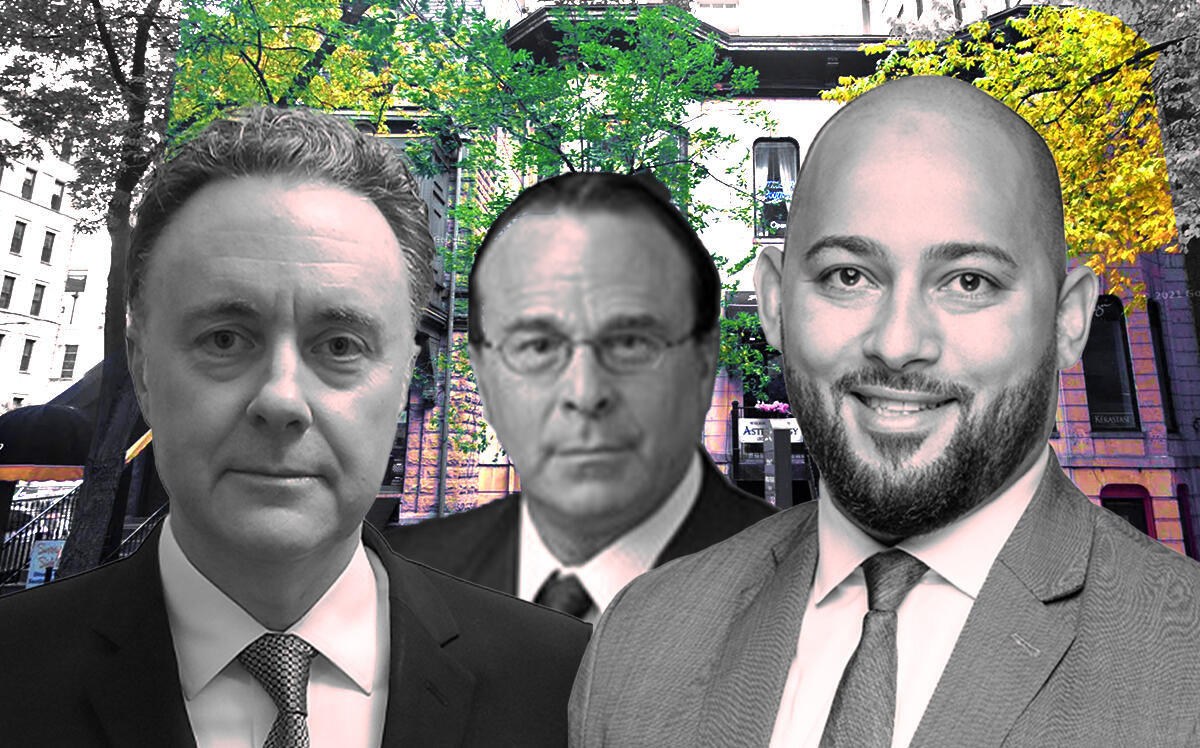More than a year after reaching a settlement to return $30 million to Chinese investors in a long-stalled Chicago hotel-condo tower project, New York-based Symmetry Property Development hasn’t paid them a dime.
Now, the company, its managing partner, Jeffrey Laytin, and attorneys are being investigated by a Dubai-based investigator appointed by a federal judge.
The investigator, Karim Mahmoud, a registered attorney in New York, was assigned as a special master at a Wednesday hearing in Illinois federal court to determine whether Symmetry or its counsel, led by Chicago-based Daniel Hildebrand, lied to the court about having the funds to repay the Chinese investors.
This week’s hearing in the international dispute was the latest complication in the stalled River North project that’s proposed for the northeast corner of Wabash Avenue and Superior Street.
Chicago Alderman Brendan Reilly of the 42nd Ward was opposed to the 60-story plan, which would have demolished rowhouses at 42 and 44-46 East Superior, and the development team failed to receive permits from the city to move the project forward. After the lawsuit was filed by the foreign investors who used the EB-5 visa program to help fund the project, the rowhouses received landmark status from the city and can’t be torn down. The developer reworked its plan at one point to preserve the buildings yet still couldn’t gain traction with local officials.
Although the class-action lawsuit is a civil case, Douglas Litowitz, the attorney representing the investors, is calling for criminal investigators to turn their attention to Symmetry’s dealings.
“They have no permit and nowhere to build and all the money is missing,” Litowitz told The Real Deal. “Where is the FBI? Where is the U.S. Attorney? No one cares.”
His clients would have been satisfied had Symmetry delivered on the $30 million settlement agreement approved by the court in February 2021. It would have had each of the investors participating in the deal get back the $500,000 apiece they put toward the Symmetry proposal.
Symmetry and its lawyers asked the investors to remain patient even after months had gone by without the settlement being fulfilled, promising the court it had a $250 million loan lined up from a Bahraini lender called Awalco that it would use to pay the settlement costs. Yet earlier this year, the special master Mahmoud found there was never any such loan.
“The overarching conclusion reached in this report is that there never was any real loan between Awalco Investment Company WLL in Bahrain to Symmetry Tower/Chicago Project Owner LLC,” the Feb. 11 report by the special master, shared with The Real Deal by Litowitz, said.
Whether Symmetry and its lawyers purposely lied to the court about having the loan lined up is the next question the special master has been tasked to answer, with a hearing next month set to hear his findings.
The February report noted it was possible Symmetry was a victim of a scam led by Awalco and it hasn’t been determined whether it knowingly misrepresented the status of the loan to the court. Documents submitted to the court but shielded from the public “merely appear to show that the defendants were potentially defrauded into sending approximately half a million to various offshore bank accounts,” the special master’s report said.
It added that if Mahmoud confirms payments were sent from a TD Bank account associated with Symmetry to the offshore accounts, that “it would then be fair to say that the defendants were likely unaware of the non-existence of the loan at the time of making those payments given they may be the potential victim of fraud.”
Symmetry plans to follow through with completing the settlement agreement, it told The Real Deal.
“The special master process is still ongoing and his conclusions are not final,” Symmetry said in a statement through its attorney Hildebrand. “Defendants are committed to perform the settlement.”
A judge in the case in a hearing earlier this month also pressed Litowitz, the Chinese investors’ lawyer, on why he hasn’t found Symmetry in default of the settlement. The judge said he felt Litowitz and his Chicago-based co-counsel Glen J. Dunn should have already attempted to collect a little more than $1 million from the defendants as a remedy to a default outlined in the agreement.
“What I am so upset about is the fact that the class counsel here hasn’t done enough to get the funds to their clients and instead they are going around trying to investigate misdeeds that will not end up with payment to their clients,” Magistrate Judge Young B. Kim said in an April 6 hearing.
Another federal judge who had previously overseen the case had given Symmetry the benefit of the doubt and a chance to receive the loan, even though Litowitz was skeptical of its existence from the beginning.
“The settlement has failed,’’ Litowitz said. “We’re going to try to exercise our remedy to get a couple million of settlement money. I think the loan never existed. I think they don’t have it. Their financial records show there is no money anywhere. The entities themselves that we sued are all broke.”
Read more


